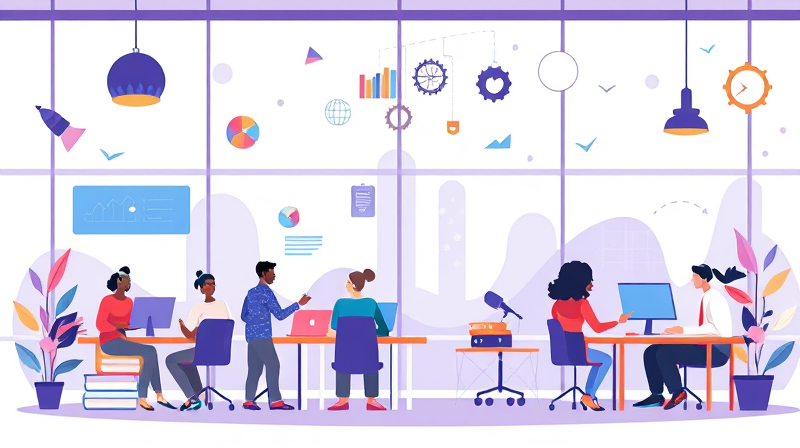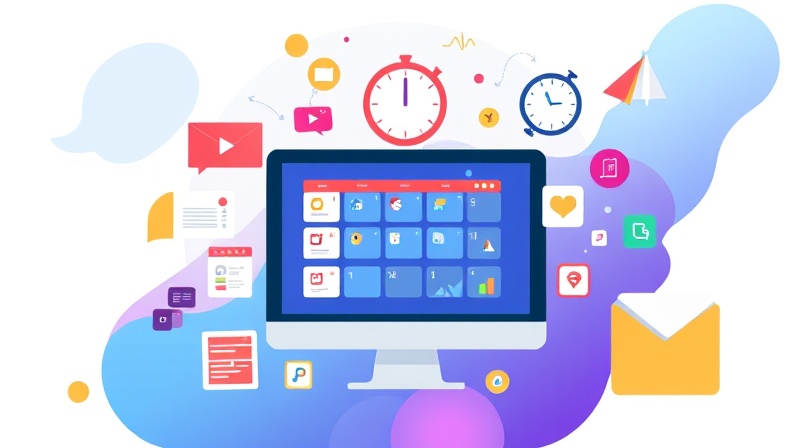In today’s rapidly changing world, continuous learning is not just a luxury; it is a necessity. Embracing lifelong learning allows us to remain agile in our careers and enriched in our personal lives. With practical strategies and a commitment to personal development, anyone can integrate learning into busy schedules.
Recent insights from 2025 have shown that while many organizations are investing in training, only a very small percentage fully understand how their employees prefer to learn. This presents both a challenge and an opportunity for individuals who want to take charge of their own learning journey.
Why Lifelong Learning Matters
Continuous education has evolved from being an optional enhancement to a core part of both personal and professional growth. Many employees and professionals have discovered that lifelong learning is the secret to staying competitive and relevant in their fields. This is especially true in today’s fast-paced environment where industries are rapidly evolving.
For those who are motivated to keep up with trends and increase their competencies, learning is the bridge to new opportunities. By making education a continual process, we not only expand our skill sets but also build a mindset that adapts to change and innovation.
Practical Strategies for Daily Learning
Implementing lifelong learning into your daily schedule might seem like a daunting task, especially when balancing work and personal responsibilities. However, with a few practical strategies, learning can seamlessly fit into everyday life.
Start With What Interests You
Begin by choosing subjects or skills that genuinely spark your curiosity. When you learn about topics that excite you, the process becomes much more enjoyable and sustainable. Enjoying the learning journey is important, and it helps maintain motivation even during busy times.
Embrace Microlearning Opportunities
Not every learning session needs to be long or intensive. Microlearning, or short bursts of focused education, is ideal for busy schedules. These small increments of learning can be integrated during commutes, lunch breaks, or short intervals between tasks. The goal is to make use of every available minute to enhance your knowledge.
Set Process-Focused Learning Goals
Rather than targeting a specific end-point, set goals that emphasize the process of learning. By committing to regular, short sessions such as a 30-minute class with a mentor or a quick online tutorial, you focus on constant improvement rather than perfection. This sustainable strategy ensures that learning remains a consistent habit rather than a sporadic effort.
Building a Structured Learning Plan
A well-organized learning plan provides clarity and direction. Developing a structure around your learning goals allows you to tackle complex topics systematically and efficiently.
Three-Step Planning Approach
The simplest approach to crafting a lifelong learning plan involves three fundamental steps:
- Identify: Clearly define what you need or desire to learn in the upcoming year. This could involve enhancing current skills or developing new abilities that will benefit your career and personal growth.
- Document: Write down your goals in clear, specific terms. Documenting these targets makes them more tangible and easier to track over time.
- Execute: For each goal, assign at least one learning activity. This proactive strategy ensures that every objective has a corresponding action, making the learning process both systematic and achievable.
By breaking down learning goals into manageable steps, you can create a personalized roadmap that fits your needs and schedule.
Making Learning Fit Your Schedule
Often, the biggest challenge is time management. Integrating learning into an already packed routine requires commitment and smart scheduling.
Choose Flexible Learning Solutions
Modern educational resources have transformed the way we learn by offering flexible, online training options. With short, focused classes available on multiple devices, you can learn on your own time without losing valuable hours. These solutions are perfect for those who are juggling diverse responsibilities.
Incorporate Collaborative Learning
Learning with others adds a social element that can enhance retention and understanding. Social and collaborative learning environments encourage open discussions and shared insights. Not only does this foster a sense of community, but it often leads to deeper learning experiences. In fact, teaching others what you have learned can be one of the best ways to solidify your knowledge.
Emerging Trends in Lifelong Learning
The landscape of education is continuously evolving. In 2025, several trends are emerging that have the potential to reshape how we approach continuous education.
AI-Driven Personalization: Artificial Intelligence is increasingly being used to tailor learning experiences to the individual. AI-driven platforms can assess your strengths and weaknesses, adjusting content to better suit your learning pace and style.
Skills-Based Talent Management: A clear shift from traditional credentials to a focus on actual skills is taking place. Organizations are now placing greater importance on capabilities, which means that practical learning is more valued than ever.
Hybrid Learning Models: Mixing different educational approaches allows learners to benefit from a blend of structure and flexibility. This model supports both in-person and online learning, making education accessible no matter your circumstances.
Emotional Intelligence and Self-Directed Learning: As personal development increasingly comes to the forefront, there’s a growing emphasis on emotional intelligence and self-guided learning methods. This focus empowers individuals to design learning experiences that are uniquely tailored to their personal and professional aspirations.
By staying aware of and embracing these trends, you can ensure that your learning methods remain relevant and effective.
Conclusion: Lifelong learning is a journey, not a destination. With the right mindset and tools, you can seamlessly integrate continuous education into your everyday life. By choosing topics that ignite your passion, creating a structured plan, and leveraging modern trends and technologies, you are setting the stage for a rich, fulfilling, and ever-evolving educational experience.
Remember, it is never too late to start or to reinvent the way you learn. Every small step taken consistently can lead to profound personal and professional growth. Embrace the learning journey today, and watch how it transforms your life tomorrow.
Stay inspired, stay curious, and let lifelong learning be your guide!







